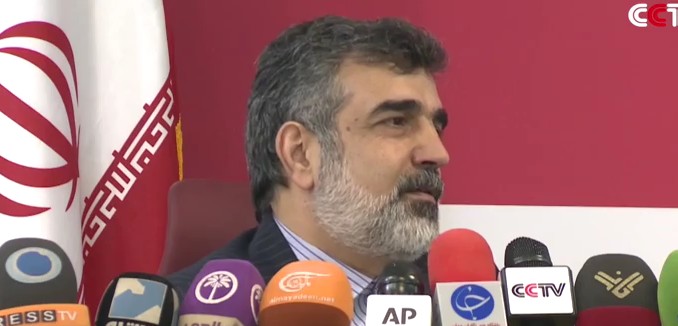Iranian officials warned Yukiya Amano, the director-general of the International Atomic Energy Agency (IAEA), that he would lose their trust in the event that he discloses the content of the Tehran regimes’ secret agreements with the international nuclear watchdog, according to a report Monday in Iran’s semi-official Fars news agency.
Behrouz Kamalvandi, the spokesman for the Atomic Energy Organization of Iran (AEOI) said that if Amano had disclosed the terms of the agreements, “he himself would have been harmed.” Iran’s Ambassador to the IAEA, Reza Najafi, added that the agency had secret agreements with all member states that it was obliged to protect. “The discussions revealed that the secret texts between Iran and the Agency have not even been provided to the US administration,” Najafi said. “For the very same reason, they cannot be presented to the Senate members either.”
Ali Akhbar Salehi, the head of the AEOI, said that his agreement to resolve all issues of Iran’s past nuclear work “will be implemented with full respect to Iran’s red lines.”
Iran has insisted that inspectors will not be allowed into military sites, including Parchin. Access to Parchin,where Iran is believed to have tested detonators for a nuclear device, is essential for clarifying the full extent of the possible military dimensions (PMD) of Iran’s nuclear program.
Last week, satellite images suggested that Iran was further sanitizing Parchin. Iran’s Foreign Minister Mohammad Javad Zarif insisted that the only work going on at Parchin was road construction. However, David Albright, a former weapons inspector and head of the Institute for Science and International Security, responded in an op-ed that was published in The Washington Post that Zarif’s reaction to the revelation showed that Iran’s “recent actions are the start of such a reinterpretation of the agreement.”
At the end of July, Iran filed a complaint with the IAEA claiming that the United States was in material breach of the Joint Comprehensive Plan of Action (JCPOA). Part of the complaint seemed to be a warning directed towards the IAEA, stating, “in implementing this procedure as well as other transparency measures, the IAEA will be requested to take every precaution to protect commercial, technological and industrial secrets as well as other confidential information coming to its knowledge.”
The Iranian understanding of the IAEA’s procedures doesn’t comport with that of former deputy director-general of the IAEA, Olli Heinonen, who said that there are procedures in place that would allow a member state of the IAEA’s board of governors to request the distribution of the same side agreements that Iran claims are absolutely confidential.
[Photo: CCTV+ / YouTube ]




